The 25 Best No-Load Mutual Funds You Can Buy
The key to building wealth long-term is buying high-quality, no-load mutual funds run by seasoned stock pickers. Here are our favorites.


Profit and prosper with the best of Kiplinger's advice on investing, taxes, retirement, personal finance and much more. Delivered daily. Enter your email in the box and click Sign Me Up.
You are now subscribed
Your newsletter sign-up was successful
Want to add more newsletters?

Delivered daily
Kiplinger Today
Profit and prosper with the best of Kiplinger's advice on investing, taxes, retirement, personal finance and much more delivered daily. Smart money moves start here.

Sent five days a week
Kiplinger A Step Ahead
Get practical help to make better financial decisions in your everyday life, from spending to savings on top deals.

Delivered daily
Kiplinger Closing Bell
Get today's biggest financial and investing headlines delivered to your inbox every day the U.S. stock market is open.

Sent twice a week
Kiplinger Adviser Intel
Financial pros across the country share best practices and fresh tactics to preserve and grow your wealth.

Delivered weekly
Kiplinger Tax Tips
Trim your federal and state tax bills with practical tax-planning and tax-cutting strategies.

Sent twice a week
Kiplinger Retirement Tips
Your twice-a-week guide to planning and enjoying a financially secure and richly rewarding retirement

Sent bimonthly.
Kiplinger Adviser Angle
Insights for advisers, wealth managers and other financial professionals.

Sent twice a week
Kiplinger Investing Weekly
Your twice-a-week roundup of promising stocks, funds, companies and industries you should consider, ones you should avoid, and why.

Sent weekly for six weeks
Kiplinger Invest for Retirement
Your step-by-step six-part series on how to invest for retirement, from devising a successful strategy to exactly which investments to choose.
In 2004, launched the Kiplinger 25 list of our favorite actively managed no-load funds. Over the years, the Kiplinger 25 has undergone several shifts. Most recently, we replaced the Heartland Mid-Cap Value Fund (HRMDX) with the Dean Mid Cap Value Fund (DALCX).
Earlier this year, we put Heartland Mid Cap Value on watch due to a disappointing turn in 2024, when it lagged 97% of its peers, which focus on midsize-company stocks trading at a discount. Its fortunes haven't changed. Over the first eight months of 2025, Heartland lagged 95% of midsize-company value funds.
So we decided to replace it with Dean Mid Cap Value. Douglas Leach has been running the fund since the late 2000s. It had a large-company focus back then, but Leach and his cohorts were veterans of the small- and midsize-company value team at American Century, and in 2011, they retooled the fund's strategy to focus on mid-cap stocks.
We summarize each of the Kiplinger 25 funds below, including Dean Mid Cap Value, and in most cases we try to provide some guidance for what role each fund can best play in your portfolio.
That said, we want to be clear: The Kip 25 itself is not meant to be a portfolio. Rather, pick and choose from among the funds to diversify and round out your portfolio where needed. And remember, the Kip 25 roster should be a starting point for your own research.

The best no-load mutual funds
Here are our picks for the best 25 no-load mutual funds: what makes them tick, and what kind of returns they've delivered. Data is as of October 31, unless otherwise noted. Five- and 10-year returns are annualized. Yields on equity funds represent the trailing 12-month yield. Yields on balanced and bond funds are SEC yields, which reflect the interest earned after deducting fund expenses for the most recent 30-day period.
Mutual funds | Symbol |
|---|---|
Dodge & Cox Stock | DODGX |
Fidelity Blue Chip Growth | FBGRX |
Mairs & Power Growth | MPGFX |
Primecap Odyssey Growth | POGRX |
T. Rowe Price Dividend Growth | PRDGX |
Vanguard Equity-Income | VEIPX |
DF Dent Midcap Growth | DFDMX |
Dean Mid Cap Value | DALCX |
Oberweis Small-Cap Opportunities | OBSOX |
T. Rowe Price Small-Cap Value | PRSVX |
Baron Emerging Markets | BEXFX |
Brown Capital Mgmt Intl Small Company | BCSVX |
Fidelity International Growth | FIGFX |
Janus Henderson Global Equity Income | HFQTX |
Fidelity Select Health Care | FSPHX |
T. Rowe Price Global Technology | PRGTX |
Vanguard Wellington | VWELX |
Baird Aggregate Bond | BAGSX |
Dodge & Cox Income | DODIX |
Fidelity Interm Muni Income | FLTMX |
Fidelity Strategic Income | FADMX |
T. Rowe Price Floating Rate | PRFRX |
Vanguard Emerging Markets Bond | VEMBX |
Vanguard High-Yield Corporate | VWEHX |
Vanguard Short-Term Inv-Grade | VFSTX |
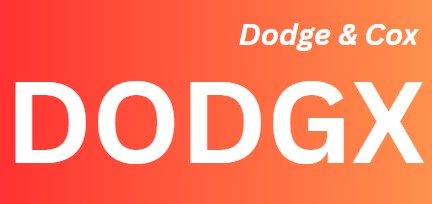
Dodge & Cox Stock
- Symbol: DODGX
- 1-year return: 8.8%
- 5-year return: 17.4%
- 10-year return: 12.1%
- Yield: 1.3%
- Expense ratio: 0.51%
Portfolio: Bargain-priced large and midsize U.S. stocks with above-average earnings prospects.
Process: The fund's six managers are contrarians. In 2024, for instance, they trimmed holdings in financials and technology, the year's top-performing sectors, and added shares in health care, materials and real estate, the worst-performing sectors.
Performance: The fund gained 8.8% over the past 12 months. Though DODGX holds some of the fast-growing tech names that have fueled market gains in recent years – specifically Amazon.com (AMZN), Microsoft (MSFT) and Alphabet (GOOGL) – the fund's stakes in those stocks aren't big enough to keep pace with the S&P 500.
As a result, the fund's 16.4% five-year annualized return beat 87% of its large-value fund peers but trailed the S&P 500's 17.6% gain.
Parting shot: Use this fund as a complement to a core broad-market stock fund, to balance out pricey, outperforming stocks. Over very long hauls, value stocks have outpaced growth stocks, with less volatility.
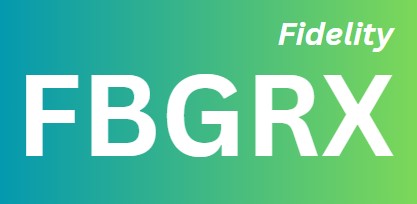
Fidelity Blue Chip Growth
- Symbol: FBGRX
- 1-year return: 30.4%
- 5-year return: 18.9%
- 10-year return: 19.6%
- Yield: 0.0%
- Expense ratio: 0.61%
Portfolio: Giant U.S. firms with robust growth in sales and earnings.
Process: Manager Sonu Kalra focuses on companies with competitive advantages, pricing power (the ability to raise prices without a big impact on sales) and a strong management team, which he says will "deliver superior earnings in the long term."
In late 2024, for example, he beefed up stakes in AppLovin (APP), a mobile technology firm that connects businesses with customers, because he believes it will benefit from advancements in artificial-intelligence-driven advertising.
Nearly half of the fund is invested in tech stocks, but Kalra has decided to keep relatively smaller stakes in benchmark heavyweights Apple (AAPL) and Microsoft. Communication services and consumer cyclical stocks, the fund's next biggest sector exposures, account for almost 20% and 17% of holdings, respectively.
Performance: The fund beat the S&P 500 over the past 12 months, returning 30%. Its three-, five- and 10-year returns beat the index, too.
Parting shot: A solid choice for growth, but buckle up if you climb aboard. The fund has been 20% more volatile than the S&P 500 over the past decade.
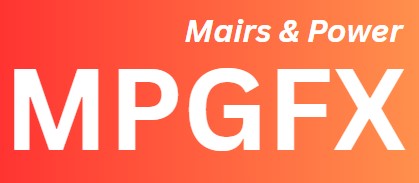
Mairs & Power Growth
- Symbol: MPGFX
- 1-year return: 12.5%
- 5-year return: 14.9%
- 10-year return: 12.6%
- Yield: 0.8%
- Expense ratio: 0.62%
Portfolio: Despite having "growth" in its name, the fund holds a mix of growth and value stocks.
Process: The managers favor reasonably priced stocks in companies of any size that have competitive advantages in their industry and the potential for above-average growth.
The bulk of the fund's companies must be based in the upper Midwest, near the fund's St. Paul office. But the managers aren't afraid to look farther afield if the price is right.
Over the years, they've added tech stocks to the fund when prices dipped; they initiated stakes in Alphabet, Microsoft, Nvidia (NVDA) and Amazon.com between 2016 and 2020. These stocks now pepper the fund's top 10. The fund's tech exposure, 6% of the portfolio in 2017, is now 38%.
Performance: Tech shares have helped performance in recent years. But the fund's serving of small and mid-cap stocks, roughly 30% of assets combined, has cut into returns as those asset classes have lagged large-company shares.
Over the past 12 months, the fund's 12.5% total return was impressive, but it fell short of the 21% gain in the S&P 500.
Parting shot: Many of its better-performing peers are index-huggers, but we appreciate this fund's independent streak. For that reason (and others), it stays in the Kiplinger 25.
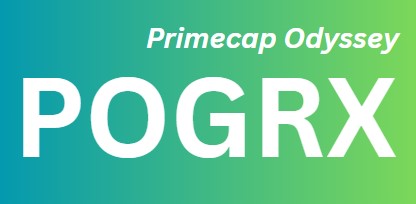
Primecap Odyssey Growth
- Symbol: POGRX
- 1-year return: 31.8%
- 5-year return: 16.6%
- 10-year return: 13.9%
- Yield: 0.3%
- Expense ratio: 0.66%
Portfolio: Growing companies of any size with a catalyst, such as a new product or a corporate restructuring, that can drive stock prices higher over the coming three to five years.
Process: Each of the fund's five managers runs a portion of the portfolio independently. But they all focus on firms with strong growth prospects that trade at a discount to what they think the company is worth.
Performance: The fund bears little resemblance to the S&P 500, and that has been a drag on relative returns in recent years.
Instead of Apple and Nvidia, Odyssey Growth's top holdings include Eli Lilly (LLY), Micron Technology (MU) and Xometry (XMTR), which makes AI-enabled manufacturing equipment.
Even so, in 2023 and 2024, the fund turned in decent gains of 24% and 13%. It held up better in 2022, down 14% compared with the S&P 500's 18% loss.
Parting shot: We've not lost faith in this fund. Over the long term, it has been a winner: A $10,000 investment 20 years ago would today be worth $94,500; the same sum in an S&P 500 index fund would be worth $84,000.
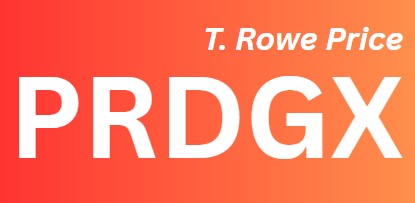
T. Rowe Price Dividend Growth
- Symbol: PRDGX
- 1-year return: 11.9%
- 5-year return: 13.4%
- 10-year return: 12.4%
- Yield: 0.9%
- Expense ratio: 0.64%
Portfolio: More than 100 stocks of mostly large, dividend-paying companies that have a history of consistently raising payouts. The fund yields 0.9%.
Process: Dividend growth is more important to longtime manager Tom Huber than dividend yield.
Performance: When the stock market is in a go-go phase, as it has been for the past two years, dividend stocks tend to get short shrift. Ergo, although Dividend Growth earned a decent return of nearly 14% in 2023 and 2024, it fell short of the S&P 500, which delivered more than 25% in both years.
The recompense, however, is lower volatility. In 2022, when the S&P 500 sank 18%, Dividend Growth slipped just 10%.
Parting shot: Double-digit long-term returns and less volatility than the broad market? Yes, please.
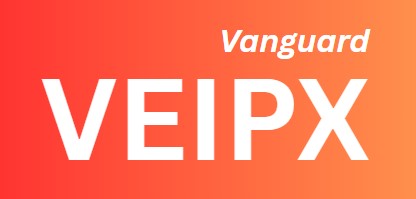
Vanguard Equity Income
- Symbol: VEIPX
- 1-year return: 12.9%
- 5-year return: 15.2%
- 10-year return: 11.1%
- Yield: 2.2%
- Expense ratio: 0.27%
Portfolio: U.S. dividend stocks. The fund yields 2.5%.
Process: Wellington Management's Matt Hand manages two-thirds of the assets, using fundamental research to find companies that pay above-average yield, boast high-quality traits and trade at reasonable prices.
Vanguard's quantitative equity group runs the rest, using screens that focus on free cash flow (money left over after operating expenses and spending to maintain and expand the business) to pick stocks.
Performance: The fund lagged the FTSE High Dividend Yield Index and the S&P 500 but outpaced majority of its peers (funds that invest in value-priced large companies) over the past 12 months.
Stocks in the consumer staples sector – Archer-Daniels-Midland (ADM), for example – and materials, PPG Industries (PPG), weighed on performance.
The fund's 10-year record beats three-quarters of its peers.
Parting shot: Dividend stocks hold up better in market sell-offs, which makes Equity Income a good portfolio diversifier.
In 2022, the fund was flat, with a 0.1% loss. By contrast, the S&P 500 slid 18.0%.
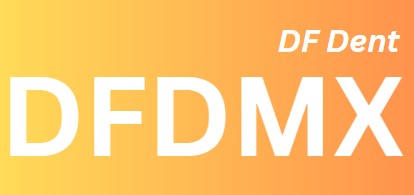
DF Dent Midcap Growth
- Symbol: DFDMX
- 1-year return: 3.6%
- 5-year return: 5.3%
- 10-year return: 10.2%
- Yield: 0.0%
- Expense ratio: 0.89%
Portfolio: Midsize, growing companies make up 60% of the fund. The rest of the portfolio is evenly split between large and small companies.
Process: Companies that dominate their industries, have sustainable earnings growth and employ smart executives are prime candidates for this fund. But price matters, too.
Performance: "Mid cap has been a tough space, but we haven't done great for the past couple of years," says comanager Bruce Kennedy. A cautious view on AI-driven investment themes hurt. "We're believers in AI, but we can't justify the valuations."
The fund doesn't own Palantir Technologies (PLTR) or AppLovin, the two biggest stocks in the Russell Midcap Growth index; both soared in 2024.
DF Dent's 2.0% gain over the past 12 months lags the index.
Parting shot: We like that DF Dent Midcap Growth has a distinctly non-index-like portfolio. That said, we're watching this fund closely.
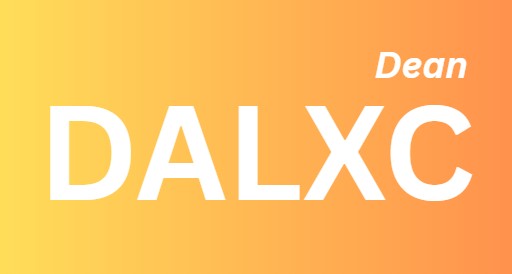
Dean Mid Cap Value
- Symbol: DALCX
- 1-year return: 5.0%
- 5-year return: 14.4%
- 10-year return: 9.9%
- Yield: 0.8%
- Expense ratio: 0.85%
Portfolio: More than half of assets are in midsize-company stocks (the rest, in mostly small-cap stocks).
Process: Douglas Leach says he employs a "classic" value investment strategy that homes in on high-quality companies trading at a discount for a temporary reason. He's not interested in deeply discounted, distressed companies or in growth companies that trade at a reasonable price. "We typically try to find the best companies in an out-of-favor sector, rather than a weak competitor in a sector that's in favor," he says.
When utility stocks began to struggle relative to the Russell Midcap Value Index in 2023, for example, Leach beefed up the fund's holdings in the sector. He bought shares in Entergy (ETR), among other stocks, in October 2023.
Industrial expansion in Entergy's coastal markets was boosting demand at a pace above the national average, says Leach. And expectations for next-gen computing power needs were lifting the company's growth prospects, too. By the time Leach exited the stock, in May 2025, Entergy shares had gained 87% over the fund's holding period, he adds.
Performance: The portfolio, which typically holds 50 to 60 stocks, has outpaced its peers and the fund's benchmark, the Russell Midcap Value index, over the past one, three, five and 10 years.
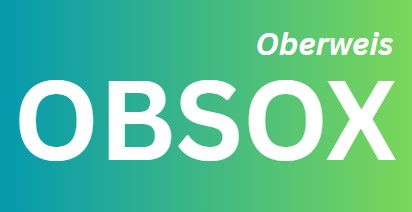
Oberweis Small-Cap Opportunities
- Symbol: OBSOX
- 1-year return: 12.7%
- 5-year return: 18.8%
- 10-year return: 14.5%
- Yield: 0.0%
- Expense ratio: 1.25%
Portfolio: Nearly 100 small-company stocks with above-average long-term earnings growth.
Process: Ken Farsalas leads the strategy, which seeks to exploit a phenomenon called post-earnings-announcement drift.
After a company appreciably beats analysts' earnings expectations, the thinking goes, investors tend to "underreact," says Farsalas, and the stock price languishes for a year or more before investors begin to realize that the business has undergone a significant change.
That's where the Oberweis managers see opportunity. If a firm beats profit expectations materially, and the business displays a fundamental change – say, a new product, management team or acquisition – or there has been a regulatory change, the managers are interested buyers.
In mid-2023, for instance, Vertiv Holdings (VRT), which provides power and cooling technology to data centers, beat earnings expectations by 56%.
Farsalas saw demand was rising for cooling solutions tied to the expansion of data centers. Shares were cheap relative to peers, and earnings estimates were too low.
He picked up Vertiv for roughly $20 a share and held until late 2024, selling for about $130. By then, Farsalas says, "the gap between the Street's expectations had narrowed, and the valuation upside had deteriorated."
Performance: Long-term returns are impressive, but the ride can be bumpy. Over the past year, the fund's 12.7% gain beat the typical peer fund by more than three percentage points.
Parting shot: The fund is volatile, but no more so than the typical small growth fund. Tighten your seat belt or keep your investment small if your tolerance for rocky returns is low.
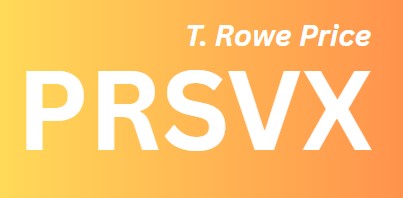
T. Rowe Price Small-Cap Value
- Symbol: PRSVX
- 1-year return: 6.8%
- 5-year return: 10.7%
- 10-year return: 9.1%
- Yield: 0.8%
- Expense ratio: 0.77%
Portfolio: Unloved, undervalued small-company stocks. The average holding has a market value of less than $4 billion.
Process: Manager David Wagner favors well-managed, profitable firms with strong balance sheets and good revenue growth. He buys when prices are cheap.
In 2024, he picked up shares in natural gas company Expand Energy (EXE); BellRing Brands (BRBR), which sells protein shakes, among other things; and Kilroy Realty (KRC), a real estate investment trust of office and mixed-use properties.
Performance: Over the past 12 months, the fund lagged the Russell 2000 small-cap index, but outpaced the majority of its peers.
Parting shot: Small value can't seem to catch a break from its doldrums as an investing style. Consider keeping a little bit of exposure with this fund, however. If history is any guide, the market will rotate away from large growth eventually.
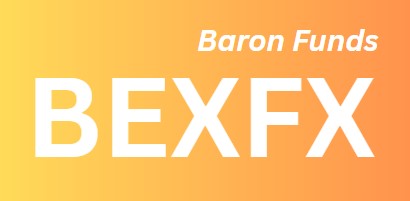
Baron Emerging Markets
- Symbol: BEXFX
- 1-year return: 29.9%
- 5-year return: 5.1%
- 10-year return: 6.6%
- Yield: 0.3%
- Expense ratio: 1.37%
Portfolio: Just over 100 stocks in developing markets. India, China, Taiwan and South Korea are the fund's biggest country exposures.
Process: Manager Michael Kass focuses on big-picture growth themes, such as digitization, global security and reforms in India, to find shareholder-friendly firms with sustainable competitive advantages and potential for long-term profit growth.
Performance: Over the past 12 months, the fund outpaced 77% of its peers, with a 10.1% return. But that follows lackluster returns, relative to peers as well as to the MSCI Emerging Markets index, between 2021 and 2023.
The fund's three-year return ranks well below average.
Parting shot: High volatility comes with the territory in a diversified emerging-markets stock fund. Still, we're considering alternatives.
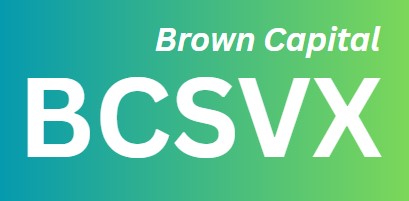
Brown Capital Management International Small Company
- Symbol: BCSVX
- 1-year return: 6.1%
- 5-year return: 4.3%
- 10-year return: 10.3%
- Yield: 0.0%
- Expense ratio: 1.31%
Portfolio: Just under 40 small companies, most of which are in developed foreign countries, such as Australia, Sweden and Japan.
Process: The managers seek "exceptional small growth companies," says comanager Kwame Webb. That means firms that deliver must-have products or services and sport increasing sales and profits or have a clear path to profitability.
Top holdings include CyberArk Software (CYBR), a U.S.-based cybersecurity stock; and Sectra, a Swedish tech-services firm that provides ways to store, view and work with medical images.
Performance: Despite an ugly 2022, the fund's 10-year annualized return of 10.3% beat 98% of its competition, as well as the MSCI All Country World ex USA Small Cap Index. Falling interest rates and lower inflation helped.
International Small Company has outpaced its peers in seven of the past nine full calendar years.
Parting shot: Add this aggressive foreign stock fund as a satellite to a core foreign fund holding, but be aware that it can be volatile.
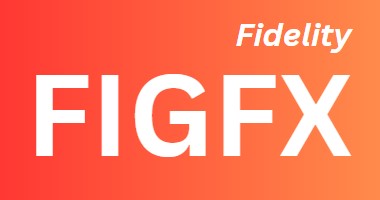
Fidelity International Growth
- Symbol: FIGFX
- 1-year return: 16.8%
- 5-year return: 9.0%
- 10-year return: 8.6%
- Yield: 0.3%
- Expense ratio: 0.86%
Portfolio: Roughly 70 large foreign companies with good growth prospects and a competitive niche in their particular industry.
Process: Manager Jed Weiss targets companies with multiyear drivers for profit growth that are trading at attractive valuations based on his earnings forecasts.
He balances underappreciated, fast-growing firms with cyclically out-of-favor companies that have limited competition and pricing power. Taiwan Semiconductor Manufacturing (TSEM) is a top holding.
Performance: Weiss has outpaced or matched his peers (foreign funds that focus on large, growing companies) in eight of the past 11 calendar years.
Over the past five years, the fund outperformed its benchmark, the MSCI EAFE Growth Index.
Parting shot: A solid core foreign stock fund with a growth tilt.
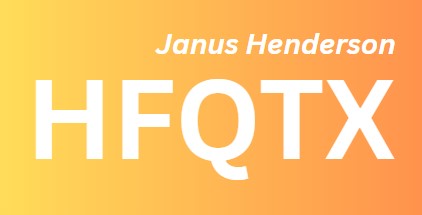
Janus Henderson Global Equity Income
- Symbol: HFQTX
- 1-year return: 21.6%
- 5-year return: 12.7%
- 10-year return: 6.9%
- Yield: 7.1%
- Expense ratio: 0.95%
Portfolio: Roughly 70 high-quality, large-company dividend stocks in markets all over the world.
Process: The managers focus on strong and growing levels of free cash flow, underappreciated earnings growth, and dividend sustainability.
European and Asian companies tend to pay dividends once or twice a year, rather than quarterly; to optimize year-round income, the managers buy a stock before it pays a dividend and sell it a few months later to buy shares in a similar firm before it pays its dividends.
The fund yields 7.1%.
Performance: The fund has outpaced peers in every calendar year but 2023. Over the past 12 months, the fund gained 21.6%.
Parting shot: A solid core foreign stock fund with a value tilt.
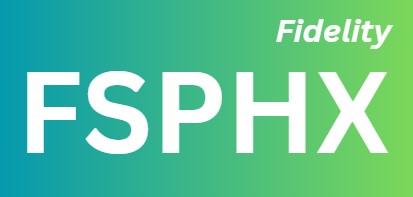
Fidelity Select Health Care
- Symbol: FSPHX
- 1-year return: 4.0%
- 5-year return: 5.2%
- 10-year return: 8.9%
- Yield: 0.0%
- Expense ratio: 0.63%
Portfolio: Health care stocks of all sizes.
Process: Longtime manager Eddie Yoon invests across all health care industries, including biotech firms, drugmakers, care providers and medical device makers.
He favors growing companies that trade at a discount to what he thinks the firms will be worth in three to four years. His biggest stakes are in health care equipment, biotech, managed care providers and drug firms.
Performance: Fidelity Select Health Care has gained 4% over the past 12 months, compared with a 21.5% gain in the S&P 500.
Uncertainty about how the Trump administration may impact health care policies – plus expectations of cutbacks for Medicaid and the Affordable Care Act – knocked the sector off its feet.
Parting shot: Health care is a necessary expense. And a rapidly aging population, a glut of underserved nations, and advances in drug discovery and genomics help pave a long runway for future growth.
That makes Fidelity Select Health Care a good bet for future growth in your portfolio.
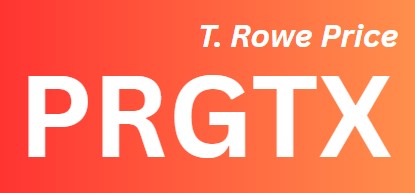
T. Rowe Price Global Technology
- Symbol: PRGTX
- 1-year return: 40.9%
- 5-year return: 10.6%
- 10-year return: 16.7%
- Yield: 0.0%
- Expense ratio: 0.92%
Portfolio: Tech and tech-related stocks from all over the world.
Process: Manager Dom Rizzo focuses on companies with "linchpin" technologies he says are mission-critical to customers or improve users' lives.
He favors firms that are increasing market share and have accelerating revenue growth, expanding profit margins and improving free cash flow. Finally, the stock must be reasonably priced.
Performance: Rizzo has posted stellar returns since taking over the fund in early 2023. Over the past 12 months, the fund's 40.9% return beat nearly 70% of all tech funds, and edged out the roughly 36% gain in the S&P 500 Information Technology Index.
Parting shot: Investors with a long-term view need a good tech fund, and this is our favorite.
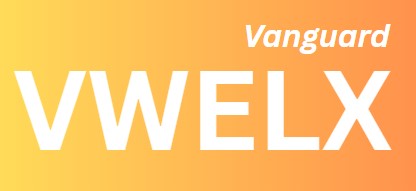
Vanguard Wellington
- Symbol: VWELX
- 1-year return: 17.7%
- 5-year return: 11.1%
- 10-year return: 9.7%
- Yield: 2.0%
- Expense ratio: 0.25%
Portfolio: It's the oldest balanced fund in the country and holds 65% in stocks and 35% in bonds. It yields 2.0%.
Process: Two managers from Wellington Management run the fund: Dan Pozen picks the stocks, and Loren Moran chooses the bonds.
Pozen favors stocks in durable businesses with strong earnings potential that trade at moderate valuations. Moran buys high-quality corporate debt and Treasuries. The bonds in the fund have an average credit rating of single-A.
Performance: The fund's 17.7%, 12-month return beat over 90% of its balanced-fund peers. Its three-year return beat more than 80% of its peers.
Parting shot: It's a good all-in-one fund for investors with moderate risk tolerance and a medium time frame who seek a smoother ride.
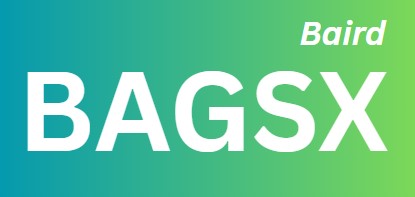
Baird Aggregate Bond
- Symbol: BAGSX
- 1-year return: 6.0%
- 5-year return: -0.2%
- 10-year return: 2.1%
- Yield: 3.8%
- Expense ratio: 0.55%
Portfolio: High-quality, medium-term debt. The fund yields 3.8%.
Process: A 10-person team, led by Warren Pierson and Mary Ellen Stanek, who won Morningstar's outstanding portfolio manager of the year award in 2022, runs the fund with a keen eye on risk.
They favor bargains and typically hunt for opportunities in troubled sectors. But they don't bet on which way interest rates might move. I
nstead, they keep the fund's duration – a measure of interest rate sensitivity – in line with the Agg index.
The fund's duration, 6.0 years, implies that if rates fell by one percentage point over a year, the fund's net asset value would rise by 6.0%, and vice versa.
Performance: The managers have succeeded in their aim to beat the Aggregate Bond index in eight of the past 11 full calendar years.
Parting shot: A solid core bond fund.
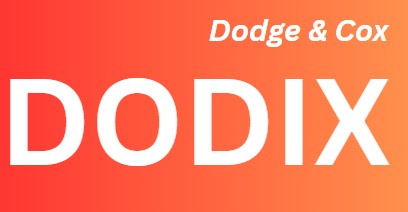
Dodge & Cox Income
- Symbol: DODIX
- 1-year return: 7.0%
- 5-year return: 1.5%
- 10-year return: 3.2%
- Yield: 4.3%
- Expense ratio: 0.41%
Portfolio: The fund holds mostly investment-grade debt (rated triple-A to triple-B), but IOUs with below-investment-grade ratings (double-B to triple-C), also called high-yield or junk bonds, can make up to 20% of assets.
The fund yields 4.3%.
Process: The eight bond managers at Income like a good value. In 2024, they navigated evolving economic and political developments and volatile interest rates by shaving the fund's corporate debt exposure and buying more government bonds.
Performance: Dodge & Cox Income boasts three-, five- and 10-year returns that beat at least 80% of intermediate core-plus bond funds.
Parting shot: A solid core bond choice with a slightly more aggressive stance.
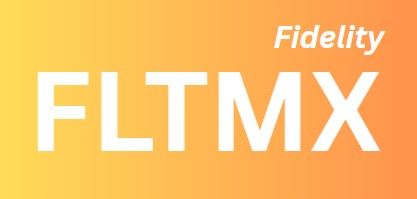
Fidelity Intermediate Municipal Income
- Symbol: FLTMX
- 1-year return: 4.9%
- 5-year return: 1.5%
- 10-year return: 2.3%
- Yield: 3.0%
- Expense ratio: 0.37%
Portfolio: Medium-maturity municipal bonds, which generate interest income that is typically exempt from federal taxes.
The fund's 3.0% yield is comparable to a 3.9% yield in a taxable bond fund for taxpayers in the 24% federal tax bracket.
Process: Three managers look for well-priced general-obligation debt – bonds funded by state and local taxes – and revenue bonds, which are IOUs for projects such as toll bridges that generate income to pay off the bond holders.
The managers seek bonds with attractive valuations and solid risk-reward profiles.
Performance: Muni bonds were volatile in late 2024, as investors weighed the impact of potential interest rate cuts.
Intermediate Muni Income gained just 4.9% over the past 12 months, roughly in line with its category.
But this is a slow-and-steady-wins-the-race fund. Over longer stretches, it posts above-average returns with below-average risk.
Parting shot: This is a solid tax-advantaged holding for high-income investors in taxable accounts.
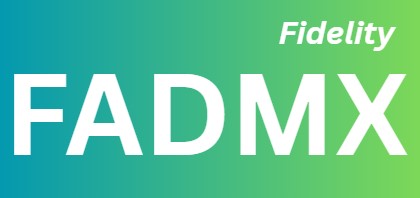
Fidelity Strategic Income
- Symbol: FADMX
- 1-year return: 8.7%
- 5-year return: 4.2%
- 10-year return: 4.4%
- Yield: 4.4%
- Expense ratio: 0.65%
Portfolio: A mix of high-yield debt, U.S. government bonds and IOUs issued in foreign developed and emerging markets. The fund yields 4.4%.
Process: Generating a high level of income is a main goal. Lead managers stick close to a benchmark of 45% high-yield debt, 30% U.S. government bonds, and 25% emerging and foreign developed market IOUs.
They tweak portfolio allocations depending on their big-picture view of global economies and bond markets. Lately, that has tilted toward high-yield and emerging-markets debt. Bond-sector specialists pick the individual bonds.
Performance: Over the past 12 months, this multisector bond fund's 8.7% return beat its peers.
High-yield bonds helped in the first half of the year. So did a position in Nvidia stock. Just over 5% of the fund's assets hold stocks, and a year-end stock rally helped the fund's returns as bonds took a breather.
Over five years, the fund's annualized return beat 76% of its peers.
Parting shot: This fund can complement a core bond fund to enhance returns and diversification.
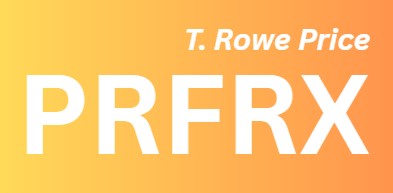
T. Rowe Price Floating Rate
- Symbol: PRFRX
- 1-year return: 6.8%
- 5-year return: 6.6%
- 10-year return: 4.9%
- Yield: 6.9%
- Expense ratio: 0.76%
Portfolio: Floating-rate loans, or bank loans, carry interest rates that reset in line with a short-term benchmark. The fund yields 6.9%.
Process: Paul Massaro and a team of analysts dive deep to find quality bank loans trading at a discount.
Performance: The fund's 12-month return of 6.8% beat 85% of bank-loan fund peers and outpaced the Morningstar index for loans of this type.
Parting shot: A small slice of floating-rate IOUs in your bond portfolio still makes sense. Their coupon rate is historically high, says Massaro, which leaves a cushion to weather more Federal Reserve rate cuts and still deliver high income.
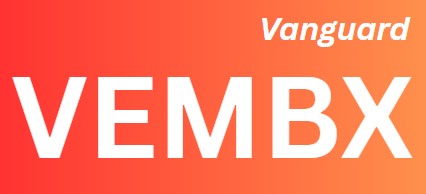
Vanguard Emerging Markets Bond
- Symbol: VEMBX
- 1-year return: 12.7%
- 5-year return: 4.5%
- 10-year return: N/A
- Yield: 5.3%
- Expense ratio: 0.50%
Portfolio: Bonds issued in emerging markets. The portfolio yields 5.3%.
Process: Vanguard's Dan Shaykevich and Mauro Favini focus mostly on dollar-denominated government debt.
They can devote up to 10% of the fund's assets to bonds issued in local currencies and up to 10% to emerging-markets corporate IOUs.
Performance: In early 2024, the managers snapped up high-quality sovereign bonds trading at attractive prices during a new-issuance wave. The fund's 12.7% gain over the past year beat its benchmark and peers.
Parting shot: A robust yield makes this fund worth considering, but limit your exposure.
Emerging-markets debt can be turbulent; the fund has been about 20% more volatile than the average core intermediate-term bond fund over the past five years.
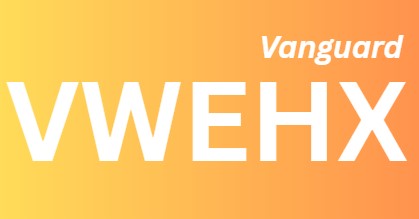
Vanguard High-Yield Corporate
- Symbol: VWEHX
- 1-year return: 8.4%
- 5-year return: 4.7%
- 10-year return: 5.1%
- Yield: 5.7%
- Expense ratio: 0.22%
Portfolio: A conservative mix of below-investment-grade corporate debt. Nearly 60% of assets are in securities rated double-B, the highest-quality tier of junk bonds; another 8% is in investment-grade debt.
The fund yields 5.7%.
Process: New-ish managers Elizabeth Shortsleeve of Wellington Management, who runs two-thirds of the fund's assets, and Michael Chang of Vanguard's in-house bond group look for high-quality junk bonds.
Both have less than three-year tenures as lead managers but boast years of experience analyzing bonds.
Performance: A 12-month return of 8.4% outpaced the majority of its peers.
Parting shot: This is a high-yield-lite option for investors who want added income with less volatility. We like what we see from the new managers so far, but we're watching closely.
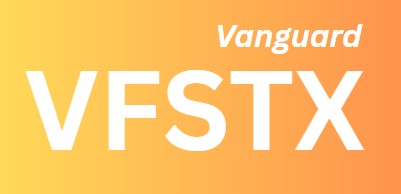
Vanguard Short-Term Investment-Grade
- Symbol: VFSTX
- 1-year return: 6.4%
- 5-year return: 2.2%
- 10-year return: 2.6%
- Yield: 4.1%
- Expense ratio: 0.20%
Portfolio: High-quality, short-maturity corporate bonds, with a smattering of government and securitized debt on the side. The fund yields 4.1%.
Process: Two Vanguard bond managers make the big-picture calls; bond-sector specialists pick the securities.
Recently, corporate debt made up 83% of the fund's assets, much of it rated triple-B or single-A with maturities of less than five years.
Treasuries and other government debt, plus some asset- or commercial-backed IOUs, make up the rest.
Performance: Compared with short-term bond fund peers, the fund boasts a yield and one-, three- and five-year returns that are better than average.
A 6.4% gain over the past 12 months topped more than 80% of peers.
Parting shot: The fund is a sensible choice for money you expect to tap in three to four years' time. But don't mistake it for a cash account – the fund lost 5.9% in 2022.
Note: This item first appeared in Kiplinger's Personal Finance Magazine, a monthly, trustworthy source of advice and guidance. Subscribe to help you make more money and keep more of the money you make here.
Related content
Profit and prosper with the best of Kiplinger's advice on investing, taxes, retirement, personal finance and much more. Delivered daily. Enter your email in the box and click Sign Me Up.

Nellie joined Kiplinger in August 2011 after a seven-year stint in Hong Kong. There, she worked for the Wall Street Journal Asia, where as lifestyle editor, she launched and edited Scene Asia, an online guide to food, wine, entertainment and the arts in Asia. Prior to that, she was an editor at Weekend Journal, the Friday lifestyle section of the Wall Street Journal Asia. Kiplinger isn't Nellie's first foray into personal finance: She has also worked at SmartMoney (rising from fact-checker to senior writer), and she was a senior editor at Money.
-
 Look Out for These Gold Bar Scams as Prices Surge
Look Out for These Gold Bar Scams as Prices SurgeFraudsters impersonating government agents are convincing victims to convert savings into gold — and handing it over in courier scams costing Americans millions.
-
 How to Turn Your 401(k) Into A Real Estate Empire
How to Turn Your 401(k) Into A Real Estate EmpireTapping your 401(k) to purchase investment properties is risky, but it could deliver valuable rental income in your golden years.
-
 My First $1 Million: Retired Nuclear Plant Supervisor, 68
My First $1 Million: Retired Nuclear Plant Supervisor, 68Ever wonder how someone who's made a million dollars or more did it? Kiplinger's My First $1 Million series uncovers the answers.
-
 How to Turn Your 401(k) Into A Real Estate Empire — Without Killing Your Retirement
How to Turn Your 401(k) Into A Real Estate Empire — Without Killing Your RetirementTapping your 401(k) to purchase investment properties is risky, but it could deliver valuable rental income in your golden years.
-
 Don't Bury Your Kids in Taxes: How to Position Your Investments to Help Create More Wealth for Them
Don't Bury Your Kids in Taxes: How to Position Your Investments to Help Create More Wealth for ThemTo minimize your heirs' tax burden, focus on aligning your investment account types and assets with your estate plan, and pay attention to the impact of RMDs.
-
 Are You 'Too Old' to Benefit From an Annuity?
Are You 'Too Old' to Benefit From an Annuity?Probably not, even if you're in your 70s or 80s, but it depends on your circumstances and the kind of annuity you're considering.
-
 In Your 50s and Seeing Retirement in the Distance? What You Do Now Can Make a Significant Impact
In Your 50s and Seeing Retirement in the Distance? What You Do Now Can Make a Significant ImpactThis is the perfect time to assess whether your retirement planning is on track and determine what steps you need to take if it's not.
-
 Your Retirement Isn't Set in Stone, But It Can Be a Work of Art
Your Retirement Isn't Set in Stone, But It Can Be a Work of ArtSetting and forgetting your retirement plan will make it hard to cope with life's challenges. Instead, consider redrawing and refining your plan as you go.
-
 The Bear Market Protocol: 3 Strategies to Consider in a Down Market
The Bear Market Protocol: 3 Strategies to Consider in a Down MarketThe Bear Market Protocol: 3 Strategies for a Down Market From buying the dip to strategic Roth conversions, there are several ways to use a bear market to your advantage — once you get over the fear factor.
-
 Dow Adds 1,206 Points to Top 50,000: Stock Market Today
Dow Adds 1,206 Points to Top 50,000: Stock Market TodayThe S&P 500 and Nasdaq also had strong finishes to a volatile week, with beaten-down tech stocks outperforming.
-
 For the 2% Club, the Guardrails Approach and the 4% Rule Do Not Work: Here's What Works Instead
For the 2% Club, the Guardrails Approach and the 4% Rule Do Not Work: Here's What Works InsteadFor retirees with a pension, traditional withdrawal rules could be too restrictive. You need a tailored income plan that is much more flexible and realistic.
